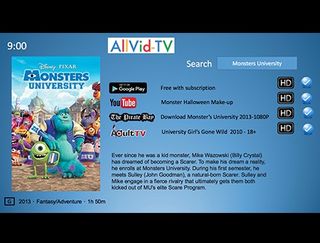Thinking Inside the Box

Content companies, unions and legislators are moving to “box out” FCC chairman Tom Wheeler’s controversial set-top box proposal. Their major concern is that “unlocking the box” would leave it vulnerable to content thieves, copyright violators or powerful edge providers, such as Google, who may be looking to edge out multichannel video programming distributors and re-monetize their content for free.
Wheeler billed the proposal as a win-win, but a lot of people don’t see it that way, and have pushed back on various aspects, including privacy, copyright, diversity and more.
In just the past two weeks, House Judiciary Committee leaders from both parties have told the chairman that copyrights are at risk. Other House Democrats, apparently unsatisfied with a Wheeler explanation of the proposal’s backing in a meeting with the House Democratic Caucus, said content creators are hardly applauding, going so far as to list the dozens of said creators who have weighed in against.
Google has been pushing the proposal for years, trying to seize an opportunity to promote over-the-top video side by side with traditional fare and get access to set-top data in the process.
Cable operators have opposed what they continue to brand the “AllVid” approach—from a previous gateway effort under the FCC’s then-chairman Julius Genachowski—and have labeled it an unnecessary technical mandate. They believe it opens their content and data up to pirates, as well as edge providers eager to monetize it without sharing the new wealth. Plus, they say an app-based approach to video navigation is already transforming the industry.
Wheeler, however, has said it would not mean rebuilding networks or “all the other horrible things” the industry has cited.
Inside the Beef
Broadcasting & Cable Newsletter
The smarter way to stay on top of broadcasting and cable industry. Sign up below
So, why are cable operators apoplectic at the prospect of competing with devices and apps? And is it about trying to keep a cash cow from getting milked by others?
They say no—that they are moving away from boxes themselves in an app-driven world and, in part—at least for smaller operators, according to the American Cable Association—because they don’t make that much money from the boxes.
They also fear that the disaggregation of channels will mean they can no longer guarantee the channel positioning programmers have negotiated, or ad placement that companies have paid for. Public Knowledge’s comments fueled that fear, as it argued that contracts shouldn’t trump the new FCC rules.
The set-top proposal has also set minority programmer against minority programmer (in this corner BET’s Bob Johnson, in the other, TV One’s Alfred Liggins and Revolt’s Keith Clinkscales). It has also divided Democrats, a few of whom publicly support it as a pro-consumer, pro-over-the-top move, while many others have big concerns and want the FCC to back off until Congress gets the results of studies of its impact on diversity.
If the FCC does not back off, cable operators have promised to sue—witness the 394 filed-pages of opposition to the proposal, courtesy of the National Cable & Telecommunications Association.
While some lobbyists and FCC sources on both sides of the issue and political spectrum argue that the NCTA misplayed its hand by pushing for axing the CableCARD regime, NCTA president Michael Powell disagrees.
“Public Knowledge and TiVo have pressured the FCC on AllVid since 2010 and with the late arrival of Google seeking free access to content through regulation, I think this FCC was going to move forward regardless of [the Satellite Television Extension and Localism Act Reauthorization],” Powell said. “In fact, the FCC is doing this despite Congress clearly rejecting calls for the very proposals that seem to have found favor at the FCC.”
Perhaps at the FCC, but on the Hill, there have been letters from prominent Democratic members of the Judiciary Committee worried about copyright protections, the Black Caucus worried about diversity, and others.
Wheeler declined comment, but his press secretary, Kim Hart, echoed his key points.
“Lack of competition in the set-top box market means 99% of pay-TV subscribers are forced to spend hundreds of dollars a year to lease set-top boxes,” Hart said. “This proposal aims to provide new options for consumers to access the content they’ve paid for, while at the same time protecting that content from illegal use. Chairman Wheeler appreciates all the input he has received on the proposal. He looks forward to working with all stakeholders to bring real competition and choice to consumers.”
Contributing editor John Eggerton has been an editor and/or writer on media regulation, legislation and policy for over four decades, including covering the FCC, FTC, Congress, the major media trade associations, and the federal courts. In addition to Multichannel News and Broadcasting + Cable, his work has appeared in Radio World, TV Technology, TV Fax, This Week in Consumer Electronics, Variety and the Encyclopedia Britannica.

